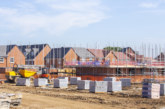PHPD collects reactions to the recent “Planning for the Future” announcement by MHCLG.
Brian Berry, Chief Executive of the FMB, said:
“The current planning system is a major barrier for small house builders, so today’s announcement that it will be brought into the 21st century through digitisation and simplification is a victory for common sense. I’m pleased to learn that the Secretary of State will engage particularly with small to medium-sized (SME) house builders to ensure the new system works for them. Key to increasing the volume and quality of new homes coming through is reversing the decline in small house builders.”
“That the Government has also made the decision to intervene in local authorities’ plan-making processes by setting a 2023 deadline to update their local plans is helpful. A recent Public Accounts Committee report found that fewer than half of local authorities had an up-to-date local plan, which goes to show that inaction is hampering housing numbers.”
“More detail is needed in terms of how local authorities plan to provide a good quality service to SMEs. While linking fees to performance and offering rebates to developers is a step in the right direction, local authorities need support to get the basics right. That means a dedicated phone number where house builders can get through to someone, the ability to arrange meetings that don’t cost an arm and a leg, and regular, good-quality communication. The FMB stands ready to support this review and reform process.”
Andy Sommerville, Director at Search Acumen
“The plans announced today by Housing Secretary Robert Jenrick are comprehensive and far ranging – which may be the stimulus needed to throw off England’s housebuilding torpor.
“We particularly welcome the government’s decision to continue Esther McVey’s initiative for building a brownfield data bank. Maximising the space for development in urban areas is key if we are to prevent a two tier system of housing in this country where rural areas are oversupplied with affordable housing but with no buyers, and densely populated cities become housing deserts for those who want to buy somewhere affordable.
“However, effective data management protocols will be essential to underpin these brownfield registries, and this is where the Government could have done more to anticipate changes to the way we buy, sell, and build. After all, what is the point of creating a valuable resource if developers and property lawyers cannot access what they need when they need it?
“Compelling local authorities to expedite their planning processes could have some benefits but using 20th Century methods to accommodate a 21st Century population may well just produce more pressure in an already congested system. Instead, helping to centralise property data, digitalise the LLC system and increase automation will help reduce the time it takes to secure permission, better inform which land can be developed and speed up the rate at which they are sold. If we want to build for the future we can do better than the tools of the past.”
Marc Vlessing, CEO of Pocket Living
“Pocket Living welcomes the Government’s commitment to deliver more homes and create more beautiful and greener communities, and their recognition that fundamental change is needed to the planning system if it to achieve this.
We particularly welcome the commitment to work with small and medium sized developers to help shape the Government’s housing strategy and long-term programme of planning reform. With over 15 years’ experience of delivering discounted affordable homes for first time buyers, and of developing complex small sites, Pocket Living is well placed to work with Government to make the necessary reforms to unblock the planning system; speed it up, increase certainty and reduce costs.
The right changes will turbo-charge housing delivery and make discounted home ownership a mainstream opportunity across the country.”
John Alker, Director of Policy and Places at UKGBC
“We welcome the focus on good design, greener homes and sustainable placemaking in today’s statement. As we have seen from the recent Housing Audit project, sadly the majority of new housing does not achieve the standards required to address the environmental or social challenges we face. It is vital that quantity goes hand in hand with quality, a point which appears to have been acknowledged in today’s announcement.
“The focus on involving communities in the design process is positive. However, this must be a genuinely collaborative process between developers, designers and communities – drawing on the expertise of professionals, and meeting the needs of all parts of local communities in order to create greater social value. We await further details with interest.
“It is encouraging to see the recognition that new homes are vital to meeting our net zero carbon target. However, the more ambitious carbon reduction requirements need to be accompanied with minimum energy efficiency standards, ensuring we reduce the amount of energy used in the first place.
“We also welcome the strong emphasis on the role of nature in good design, including the promotion of tree-lined streets. Nature-based, good quality design is a win-win – addressing biodiversity decline and ensuring we have beautiful places that are future-proofed against a changing climate. To that end, measures to review building on flood plains are also extremely important.”
National Federation of Builders/House Builders Association
Richard Beresford, chief executive of the National Federation of Builders (NFB), said: “Planning reform has been a long time coming and we’re grateful that it has been taken seriously. As the major rural employers, apprentice trainers and local investors, smaller builders must benefit greatly from reforms and we look forward to working with the Government on ensuring this happens.”
Rico Wojtulewicz, head of housing and planning at the House Builders Association (HBA), said: “After five years of asking the Government to build within communities, map brownfield land, digitise planning and ensure actual housing need is being met, these and other announcements prove that the Government is listening to the wider industry. We have a long way to go but this a great first step and welcomed news.”









